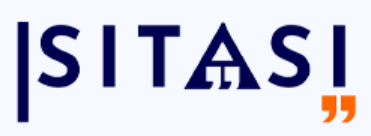FROM LITERACY TO LEADERSHIP: THE IMPACT OF FEMALE EDUCATION ON COMMUNITY DEVELOPMENT IN AFGHANISTAN
DOI:
https://doi.org/10.53067/ije3.v5i2.375Keywords:
Female education, community development, barriers, e-learning, AfghanistanAbstract
Female education is a critical factor influencing social and economic development in Afghanistan, yet numerous cultural, economic, and infrastructural barriers continue to limit girls’ access to education. This study explores the impact of female education on community development in Afghanistan, aiming to identify the key benefits, challenges, and effective strategies to enhance educational access for women. The research employed a quantitative methodology, collecting data through structured questionnaires distributed electronically via WhatsApp, email, and Facebook. A total of 110 female students aged 20 to 25 from Vision Higher Education and Research Institute, representing Medical, Computer Science, and Education faculties, participated in the study. The findings indicate that female education significantly contributes to leadership opportunities, poverty reduction, improved health outcomes, and economic growth within Afghan communities. However, cultural norms and traditions remain the most significant barriers, alongside security concerns and economic hardship. Participants identified building more schools, promoting e-learning, and community awareness programs as effective methods to improve female educational access. Additionally, technology plays a multifaceted role in facilitating flexible learning, expanding educational resources, and empowering women through entrepreneurial skill development. In conclusion, the study underscores that female education is a powerful catalyst for community development in Afghanistan but is constrained by complex social and infrastructural challenges. Addressing these obstacles requires comprehensive strategies that combine infrastructure development, technological integration, and socio-cultural engagement. These findings provide valuable insights for policymakers, educators, and stakeholders committed to advancing female education and fostering sustainable development in Afghanistan.
Downloads
References
Abbagana, K. (2013). Female–child education: A critical issue for national development in Nigeria. Development, 5(2), 1-8.
Alabi, T., & Alabi, O. S. (2014). Female education: A sociological analysis of girl-child education in Nigeria. International Journal of Educational Policy Research and Review, 1(1), 006-013.
Amwonya, D., Kigosa, N., & Kizza, J. (2022). Female education and maternal health care utilization: evidence from Uganda. Reproductive Health, 19(1), 142.
Arooje, R., & Burridge, N. (2020). School education in afghanistan: Overcoming the challenges of a fragile state. Handbook of education systems in South Asia, 1-33.
Burridge, N., Maree Payne, A., & Rahmani, N. (2016). ‘Education is as important for me as water is to sustaining life’: perspectives on the higher education of women in Afghanistan. Gender and Education, 28(1), 128-147.
Hakimi, M., Fazil, A. W., Ahmady, E., Qarizada, A., & Quraishi, T. (2024). Cyber Opportunities: Fostering Women's Empowerment through E-Commerce in Afghanistan. Room of Civil Society Development, 3(1), 1-12.
Hakimi, M., Kohistani, A. J., Azimy, A. S., & Sudestra, I. M. A. (2025). THE INFLUENCE OF EMERGING TECHNOLOGIES ON COMMUNICATION PRACTICES IN THE DIGITAL AGE. Jurnal Ilmiah Dinamika Sosial, 9(1), 136-153.
Hakimi, M., Musawi, S. Z., & Khaliqyar, K. Q. (2024). Exploring Managerial Barriers and Strategic Opportunities for E-Learning Deployment in Afghanistan. Jurnal Ilmiah Manajemen dan Bisnis, 9(1), 36-44.
Hakimi, M., Quchi, M. M., Hasas, A., & Fazil, A. W. (2024). The Transformative Power of Information and Communication Technology in Empowering Women in Afghanistan. Journal of Social Science Utilizing Technology, 2(1), 15-27.
Hamdard, A. J., & Firozi, S. M. (2024). Breaking Barriers: The Evolution and Impact of Women's Political Leadership in Afghanistan. RAIS Journal for Social Sciences, 8(2), 94-102.
Hassan, S. A., & Rafaz, N. (2017). The role of female education in economic growth of Pakistan: A time series analysis from 1990-2016. International journal of innovation and economic development, 3(5), 83-93.
Kobani, D., & Nkpolu, O. (2014). The impact of girl-child education on community development: A study of Ika Local Government Area of Akwaibom State. Res on Human and Soc Sci, 4(12), 122-128.
Mazloum Yar, F. G., & Musadiq, M. (2024). The role and importance of empowering rural communities for rural development in Afghanistan. Journal Edunity, 3(11).
Musawi, S. Z., Hakimi, M., Nasrat, A., Rahmani, K. R., Khaliqyar, K. Q., & Fazil, A. W. (2025). E-Learning Adoption in Afghanistan Universities (2019-2024): A Systematic Review of Implementation, Challenges, and Future Direction.
Roof, D. J. (2017). Challenges and opportunities: community college development in Afghanistan. Handbook of Comparative Studies on Community Colleges and Global Counterparts, 1-15.
Sheikh, S. M., & Loney, T. (2018). Is educating girls the best investment for South Asia? Association between female education and fertility choices in South Asia: A systematic review of the literature. Frontiers in public health, 6, 172.
Stell, W., Amani, K., Oduola, S. O., Ajayi, T. F., & John, S. (2005). One Size Doesn’t Fit All: Addressing Diversity in the Needs and Development Capacities of Afghan Women, Short and Long-Term.
Uduji, J. I., Okolo-Obasi, E. N., & Asongu, S. A. (2020). The impact of corporate social responsibility interventions on female education development in the rural Niger Delta region of Nigeria. Progress in Development Studies, 20(1), 45-64.
Wyndow, P., Li, J., & Mattes, E. (2013). Female empowerment as a core driver of democratic development: A dynamic panel model from 1980 to 2005. World Development, 52, 34-54.
Yar, F. G. M., & Rahmani, M. (2024). Innovative Strategies for Empowering Rural Communities: International Experiences and Applications in Afghanistan. Enrichment: Journal of Multidisciplinary Research and Development, 2(9).
Downloads
Published
How to Cite
Issue
Section
License
Copyright (c) 2025 Oranos Sekandari, Eidia Ghafori, Mursal Ebrahimi, Negin Hajizadah, Quraishi Tamanna, Wajia kakar, Behishta Murady

This work is licensed under a Creative Commons Attribution-NonCommercial-ShareAlike 4.0 International License.
Copyright @2021. This is an open-access article distributed under the terms of the Creative Commons Attribution-NonCommercial-ShareAlike 4.0 International License (http://creativecommons.org/licenses/by-nc-sa/4.0/) which permits unrestricted non-commercial used, distribution and reproduction in any medium















